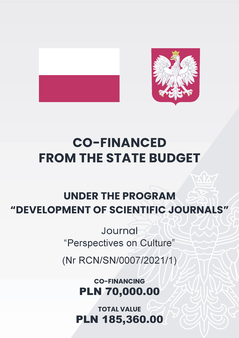A Thinker in a Plagued City
Machiavelli’s Epidemic Discourse
Abstract
Niccolò Machiavelli viewed the governance of a state as parallel to the practice of medicine — endeavors characterized by proactive measures during times of prosperity and healing, at times harsh, interventions during moments of crisis. In Machiavelli’s conception, the ruler assumes the role of a physician for the body politic, perpetually threatened by a host of maladies including plague, rebellion, disorder, subjugation, demagoguery, and decadence. The intersection of medicine and politics within Machiavellian discourse constructs a unique narrative framework, reflecting the anxieties and collective traumas of generations grappling with the constant specter of plague resurgence. It appears, therefore, that Machiavelli’s philosophical framework can be interpreted as a socio-political venture akin to a medical intervention, formulated in reaction to both the tangible and metaphorical crises precipitated by the plague. Simultaneously, within the works of this contentious philosopher, we encounter a form of pastiche intended to satirize not only the reality of the plague but also the literature that chronicles it. The dichotomy of discourses inherent within the corpus machiavellicum often prompts scholars to discern a perplexing disjunction between Machiavelli as the progenitor of objective political science, modeled after medical principles, and Machiavelli as the artist, weaving subjective and fictional literary worlds. However, this apparent contradiction can be reconciled into a more coherent depiction of Machiavelli as a thinker, whose central theme revolves around contemplation of the human condition amidst calamity. Both perspectives resonate with the ethos of the Renaissance resurgence following the plague, defying resignation and striving to rejuvenate society.
References
Aberth, J. (2005). The Black Death: The Great Mortality of 1348–1350: A Brief History with Documents. Boston MA: Bedford/St. Martin’s.
Alexander, L. (2020). What Machiavelli knew about pandemics. The New Statesman. Pozyskano z: https://www.newstatesman.com/long-reads/2020/06/what-machiavelli-knew-about-pandemics (dostęp: 20.08.2023).
Aron, R. (2016). Antynomie polityki. Przegląd Polityczny, nr 139, I–IV.
Atkinson, C. (2002). Debts, Dowries, Donkeys: The Diary of Niccolò Machiavelli’s Father Messer Bernardo in Quattrocento Flor-ence. Frankfurt am Main: Lang.
Bachtin, M. (1975). Twórczość Franciszka Rabelais’go a kultura ludowa Średniowiecza i Renesansu. Warszawa: Wydawnictwo literackie.
Bagnulo, A. (2019). Predatory Politics: Sex, Domination and Freedom in Machiavelli’s Mandragola. TheźPolitical Science Reviewer, nr 43 (1), 67–106.
Barbaro, N. (1969). Diary of the Siege of Constantinople 1453. New York: Exposition Press.
Bergès, M. (2000). Machiavel. Un Penseur Masqué? Bruxelles: Complexe.
Berges, M. (2016). Posępna noc Hieronima Boscha. Przegląd Polityczny, nr 139, 126–137.
Biały, F. (2016). W obronie Machiavellego. Przegląd Polityczny, nr 139, 84–89.
Boccaccio, G. (2022). Dekameron. Warszawa: Wydawnictwo MG.
Clarke, M.T. (2022). Curing Virtue: Epicureanism and Erotic Fantasy in Machiavelli’s Mandragola. Political Theory, 50(6), 913–938. DOI: 10.1177/00905917221095859.
Cohn, S. (2010). Cultures of Plague: Medical Thought at the End of the Renaissance. Oxford: Oxford University Press.
Crawfurd, R. (2014). Plague and pestilence in literature and art. Oxford: Clarendon Press.
Crawshaw, J. (2012). Plague Hospitals: Public Health for the City in Early Modern Venice. Farnham, Surrey: Ashgate.
Daniel, N. (1962). Islam and the West. The making of an image. Edin-burgh: Edinburgh University Press.
Dante, A. (2023). Boska komedia. Warszawa: Wydawnictwo Literackie.
De Grazia, S. (1996). Machiavelli in Hell. London: Papermac.
Eisner, M. (2019). Machiavelli in Paradise: How Reading Dante and Ovid Shaped The Prince. PMLA, nr 134(1), 35–50. DOI: 10.1632/pmla.2019.134.1.35.
Foucault, M. (1998). Nadzorować i karać. Warszawa: Aleheia.
Foucault, M. (2003). Abnormal: Lectures at the Collége De France 1974–1975. London: Verso.
Freccero, J. (2015). In Dante’s Wake: Reading from Medieval to Modern in the Augustinian Tradition. New York: Fordham University Press.
Gaille, M. (2018). Machiavelli on Freedom and Civil Conflict: An Historical and Medical Approach to Political Thinking. Leiden: Brill. Retrieved.
Geltner, G. (2019). In the Camp and on the March: Military Manuals as Sources for Studying Premodern Public Health. Medical Histo-ry, nr 63(1), 44–60. DOI: 10.1017/mdh.2018.62
Girard, R. (1974). The Plague in Literature and Myth. Texas Studies in Literature and Language, nr 15(5), 833–850.
Girard, R. (1980). Od Boskiej Komedii do socjologii powieści. W: A. Mencwel (red.), W kręgu socjologii literatury: antologia tekstów za-granicznych, t. 2. Warszawa: Państwowy Instytut Wydawniczy, 247–257.
Gładziuk, N. (2020). Centaur w zagrodzie Wenus. Machiavelli i pragnienia męskości. Teksty Drugie, nr 6, 136–156. DOI: 10.18318/td.2020.6.9.
Gragnolati, M. i Webb, H. (2015). Dubbiosi Disiri: Mimetic Processes in Dante’s Comedy. W: H. Webb i P. Antonello (red.), Mimesis, Desire, and the Novel: Rene Girard and Literary Criticism. Michigan: Michigan State University Press, 113–32.
Greenblatt, S. (2005). Renaissance Self-Fashioning: From More to Shake-speare. Chicago: University of Chicago Press.
Hansz, W. (2021). Świat Machiavellego. Bydgoszcz: Wydawnictwo Kazi-mierza Wielkiego.
Healy, M. (2002). Fictions of Disease in Early Modern England: Bodies Plagues and Politics. New York: Palgrave 2002.
Horrox, R. (2013). The Black Death. Manchester: Manchester University Press.
Howes, D.E. (2012) Creating Necessity: Well-Used Violence in the Thought of Machiavelli. Symploke, nr 20(1), 183–207. DOI: 10.5250/symploke.20.1-2.0183.
Jones, C. (1996). Plague and Its Metaphors in Early Modern France. Representations, nr 53, 97–127. DOI: 10.2307/2928672.
Kinzelbach, A. (2006). Infection, Contagion, and Public Health in Late Medieval German Imperial Towns. Journal of the History of Medicine and Allied Sciences, nr 61, 369–89.
Kritobulos z Imbros (2022). Upadek Konstantynopola. Warszawa: Henryk Pietruszczak.
Landon, W.J. (2013). Lorenzo di Filippo Strozzi and Niccolo Machiavelli: Patron, Client, and the Pistola fatta per la peste/An Epistle Written Concerning the Plague. Toronto: University of Toronto Press.
Lee, A. (2021). Machiavelli: His Life and Times. London: Picador.
Levenstein, J. (1996). Out of Bounds: Passion and the Plague in Boccac-cio’s Decameron. Italica, nr 73(3), 313–335.
Macaulay, L. (1875). The Works of Lord Macaulay: Complete. London: Longmans Green.
Machiavelli, N. (2019). Epistola Della Peste (EDP). Roma: Edizioni di storia e letteratura.
Machiavelli, N. (1972). Książę (P). W: J. Malarczyk, C. Nanke i K. Żaboklicki (red.), Wybór pism. Warszawa: Państwowy Instytut Wydawniczy, 139–230.
Machiavelli, N. (1972). Mandragora (M). W: J. Malarczyk, C. Nanke i K. Żaboklicki (red.), Wybór pism. Warszawa: Państwowy Instytut Wy-dawniczy, 982–1064.
Machiavelli, N. (1972). O Belfagorze arcydiable (BA). W: J. Malarczyk, C. Nanke i K. Żaboklicki (red.), Wybór pism. Warszawa: Państwowy In-stytut Wydawniczy, 1065–1074.
Machiavelli, N. (1984). Lettere. W: F. Gaeta., Opere di Niccolò Machiavel-li, vol. 3. Turin: UTET.
Machiavelli, N. (1986). Tercets on Ambition (DA). W: A. Gilbert (red.), The Chief Works and Others. Durham–London: Duke University Press, 735–39.
Machiavelli, N. (1986). The [Golden] Ass (AS). W: A. Gilbert (red.), The Chief Works and Others. Durham–London: Duke University Press, 750–772.
Machiavelli, N. (1990). Historie florenckie (IF). Kraków–Warszawa: Pań-stwowe Wydawnictwo Naukowe.
Machiavelli, N. (1996). Machiavelli and His Friends: Their Personal Corre-spondence, red. J.B. Atkinson i D. Sices. DeKalb IL: Northern Illinois University Press.
Machiavelli, N. (2009). Rozważania nad pierwszym dziesięcioksięgiem historii Rzymu Liwiusza (D). Warszawa: Wydawnictwa Uniwersytetu Warszawskiego.
Machiavelli, N. (2012). Sztuka wojny (AG). Gliwice: Helion.
Martinez, R.L. (1983). The Pharmacy of Machiavelli: Roman Lucretia in Mandragola. Renaissance Drama, nr 14, 1–43.
Meserve, M. (2008). Empires of Islam in Renaissance Historical Thought. Cambridge Mass: Harvard University Press.
Minter, A. (1992). Machiavelli, Violence, and History. The Harvard Review of Philosophy, nr 2(1), 25–32. DOI: 10.5840/harvardreview1992216.
Morrison, A.S., Kirshner, J. i Molho, A. (1985). Epidemics in Renaissance Florence. American Journal of Public Health, nr 75(5), 528–535. DOI: 10.2105/ajph.75.5.528.
Owidiusz. (1995) Metamorfozy. Wrocław: Zakład Narodowy im. Ossoliń-skich.
Parel, A. (2022). The Machiavellian Cosmos. New Haven: Yale University.
Pitkin, H.F. (1999). Fortune Is a Woman: Gender and Politics in the Thought of Niccolò. Chicago IL: University of Chicago Press.
Ridolfi, R. (1969). Vita di Niccolò Machiavelli. Florence: Sansoni.
Ruggiero, G. (2007). Machiavelli in Love: Sex Self and Society in the Italian Renaissance. Baltimore: Johns Hopkins University Press.
Ruggiero, G. (2021). Love and Sex in the Time of the Plague: A Decameron Renaissance. Cambridge Massachusetts: Harvard University Press.
Schwoebel, R. (1967). The Shadow of the Crescent: The Renaissance Im-age of the Turk. Leiden: Brill.
Slack, P. (1988). Responses to Plague in Early Modern Europe: The Impli-cations of Public Health. Social Research, nr 55(3), 433–453.
Sloterdijk, P. (2021). Co się zdarzyło w XX wieku? Warszawa: Aletheia.
Smarr, J.L. (1986). Boccaccio and Fiammetta: The Narrator As. Lover. Urbana: University of Illinois Press.
Smoller, L.A. (2000). Of Earthquakes, Hail, Frogs, and Geography: Plague and the Investigation of the Apocalypse in the Later Middle Ages, W: C.W. Bynum i P. Freedman (red.), Last Things: Death and the Apocalypse in the Middle Ages. Philadelphia: University of Pennsylva-nia Press, 156–188. DOI: 10.9783/9780812208450.156.
Smołucha, J. (2021). Walka z czarną śmiercią w świetle wybranych pism i traktatów z XIV w. Studia Historica Gedanensia, t. XII, 31–43.
Strauss, L. (2021). O Machiavellim. Warszawa: Teologia Polityczna.
Tannahill, R. (2013). Historia seksu. Warszawa: Aletheia.
Tarlton, C. D. (2002). Political desire and the idea of murder in Machiavel-li’s the Prince. Philosophy, nr 77(1), 39–66.
Verbaere, L. (2019). Turks, Renaissance Image of. W: M. Sgarbi (red.), Encyclopedia of Renaissance Philosophy. Cham: Springer, 3324–3327.
Villari, P. (1883). The Life and Times of Niccolò Machiavelli. London: Kegan Paul, Trench and Co.
Winter, Y. (2014). The Prince and His Art of War: Machiavelli’s Military Populism. Social Research, nr 81(1), 165–191.
Winter, Y. (2018). Machiavelli and the Orders of Violence. Cambridge: Cambridge University Press.
Wolin, S. (2004). Politics and Vision: Continuity and Innovation in Western Political Thought. Princeton: Princeton University Press.
Zanzi, L. (2013). Il metodo di Machiavelli. Bologna: Il Mulino.
Ziegler, P. (1969). The Black Death. New York: John Day.
Copyright (c) 2024 Ignatianum University in Cracow

This work is licensed under a Creative Commons Attribution 4.0 International License.
Autor, zgłaszając swój artykuł, wyraża zgodę na korzystanie przez Wydawnictwo Uniwersystet Ignatianum z utworu na następujących polach eksploatacji:
- utrwalania utworu w formie papierowej, a także na nośniku cyfrowym lub magnetycznym;
- zwielokrotnienia utworu dowolną techniką, bez ograniczenia ilości wydań i liczby egzemplarzy;
- rozpowszechniania utworu i jego zwielokrotnionych egzemplarzy na jakimkolwiek nośniku, w tym wprowadzenia do obrotu, sprzedaży, użyczenia, najmu;
- wprowadzenia utworu do pamięci komputera;
- rozpowszechniania utworu w sieciach informatycznych, w tym w sieci Internet;
- publicznego wykonania, wystawienia, wyświetlenia, odtworzenia oraz nadawania i reemitowania, a także publicznego udostępniania utworu w taki sposób, aby każdy mógł mieć do niego dostęp w miejscu i czasie przez siebie wybranym.
Wydawca zobowiązuje się szanować osobiste prawa autorskie do utworu.






